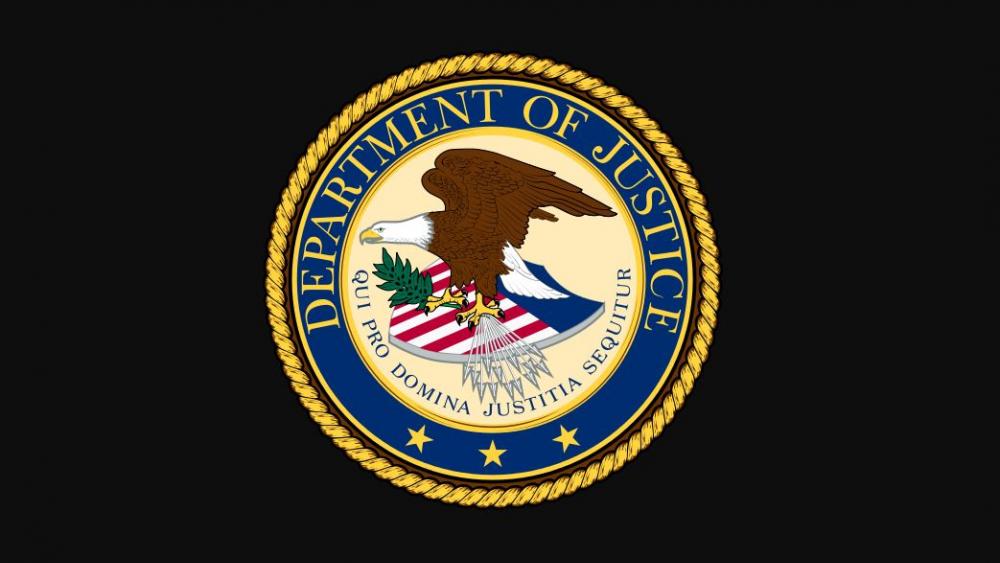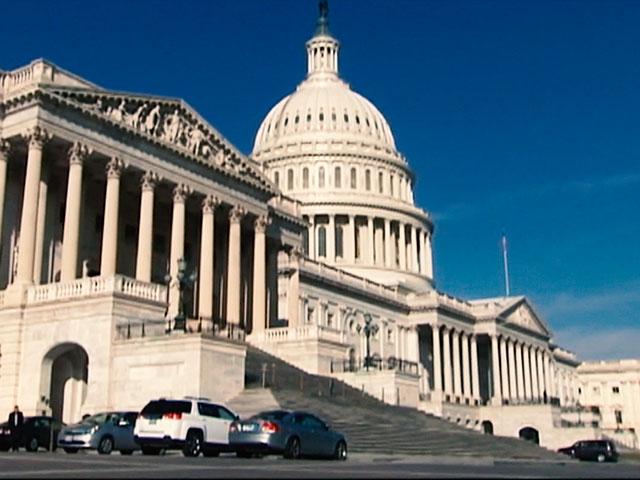GOP Senator May Block Kavanaugh Confirmation After Woman Claims Sexual Attack
WASHINGTON (AP) - President Donald Trump's nomination of Brett Kavanaugh to the Supreme
Court was thrust into turmoil Sunday after the woman accusing him of high school-era sexual
misconduct told her story publicly for the first time. Democrats immediately called for a delay in a
key committee vote set for this later week and a Republican on the closely divided panel said he's
"not comfortable" voting on the nomination without first hearing from the accuser.
The woman, Christine Blasey Ford, told The Washington Post in her first interview that Kavanaugh
pinned her to a bed at a Maryland party they attended in the early 1980s, clumsily tried to remove her
clothing and put his hand over her mouth when she tried to scream.
"I thought he might inadvertently kill me," Ford said. "He was trying to attack me and remove my
Misconduct
Ford, 51 and a clinical psychology professor at Palo Alto University in California, says she was able
to get away after a friend of Kavanaugh's who was in the room jumped on top of them and everyone
tumbled.
Kavanaugh, 53 and a federal appeals judge in Washington, on Sunday repeated an earlier denial of
Ford's allegation.
"I categorically and unequivocally deny this allegation. I did not do this back in high school or at any
time," Kavanaugh said through the White House.
The allegation first came to light late last week in the form of a letter that has been in the possession of
Sen. Dianne Feinstein of California, the top Democrat on the Senate Judiciary Committee, for some
time.
The committee recently concluded four days of public hearings on the nomination and the panel's
Republican chairman, Chuck Grassley of Iowa, scheduled a Thursday vote on whether to recommend
that the full Senate confirm Kavanaugh for a lifetime appointment to the nation's highest court.
Democrats, led by New York Sen. Chuck Schumer, immediately called for it to be postponed, though
Republicans gave no indication Sunday that they would accede to the calls by Democrats, most of
whom already publicly oppose Kavanaugh.
A spokesman for the Senate Judiciary Committee said late Sunday that Grassley is trying to arrange
separate, follow-up calls with Kavanaugh and Ford, but just for aides to Grassley and Feinstein, before
Thursday's scheduled vote.
But Sen. Jeff Flake, R-Ariz., a committee member, told The Washington Post and Politico in interviews
Sunday that he's "not comfortable" voting for Kavanaugh until he learns more about the allegation.
Flake is one of 11 Republicans on the committee, whose 10 Democrats all oppose Kavanaugh. A
potential "no" vote from Flake would complicate Kavanaugh's prospects.
Another Republican member, Sen. Lindsey Graham of South Carolina, said he's willing to hear from
Ford provided that it's "done immediately" to keep the confirmation process on track. Critics have
accused the GOP of fast-tracking the process to get Kavanaugh on the court by Oct. 1, the first day
of the fall term.
Senate Republicans, along with the White House, see no need to postpone voting over what they
consider uncorroborated and unverifiable accusations, according to a person familiar with the situation
but not authorized to speak publicly.
In considering their options Sunday, Republicans largely settled on the view that Ford's story alone
was not enough to delay Kavanaugh's confirmation.
Grassley could invite Ford to testify, likely in closed session before Thursday. Kavanaugh would also
probably be asked to appear before senators. The panel would also likely seek testimony from Mark
Judge, Kavanaugh's friend and classmate who Ford says jumped on top of her and Kavanaugh. Judge
has denied that the incident happened.
Republicans have not settled on the strategy, the person familiar with the situation said, but were
weighing options, including doing nothing.
Republicans say the allegations have already cast a shadow over Kavanaugh but that it does not appear
to be enough to change the votes in the narrowly divided 51-49 Senate. Key will be the views of Sens.
Susan Collins of Maine and Lisa Murkowski of Alaska, who did not immediately comment publicly
Sunday.
A spokesman for Grassley said Kavanaugh already went through several days of hearings and has been
investigated by the FBI.
The White House has accused Feinstein, who revealed the letter's existence late last week, of mounting
an "11th hour attempt to delay his confirmation." The White House has also sought to cast doubt about
Ford's allegation by noting that the FBI has repeatedly investigated Kavanaugh since the 1990s for
highly sensitive positions he has held, including in the office of independent counsel Ken Starr, at the
White House and his current post on the federal appeals court in Washington.
Both Democratic and Republican senators questioned Feinstein's handling of the allegation. Feinstein
on Sunday called on the FBI to investigate Ford's story "before the Senate moves forward on this
nominee."
Kavanaugh's nomination has sharply divided an already closely divided Senate, with most Democrats
opposing him and most Republicans supporting him.
But the allegations of sexual misconduct, particularly coming amid the #MeToo movement against
sexual harassment, coupled with Ford's emergence could complicate matters, especially as key
Republican senators, including Collins and Murkowski, are under enormous pressure from outside
groups who want them to oppose Kavanaugh on grounds that as a justice he could vote to undercut
the Roe v. Wade ruling legalizing abortion in the U.S.
Ford told the Post that Kavanaugh and a friend - both "stumbling drunk," she says - corralled her into
a bedroom during a house party in Maryland in the early 1980s when she was around 15 and Kavanaugh
was around 17. She says Kavanaugh groped her over her clothes, grinded his body against hers and
tried to take off her one-piece swimsuit and the outfit she wore over it.
Kavanaugh covered her mouth with his hand when she tried to scream, she says, and escaped when
Judge jumped on them.
In the interview, Ford says she never revealed what had happened to her until 2012, when she and her
husband sought couples therapy.
Portions of her therapist's notes, which Ford provided to the Post, do not mention Kavanaugh by name
but say Ford reported being attacked by students "from an elitist boys' school" who went on to become
"highly respected and high-ranking members of society in Washington."
Kavanaugh attended a private school for boys in Maryland while Ford attended a nearby school.
Ford's husband, Russell Ford, also told the newspaper that his wife described during therapy being
trapped in a room with two drunken boys and that one of them had pinned her to a bed, molested her
and tried to prevent from screaming. He said he recalled his wife using Kavanaugh's last name and
expressing concern that Kavanaugh - then a federal judge - might someday be nominated to the
Supreme Court.
The therapist's notes say four boys were involved, but Ford says that was an error by the therapist.
Ford says four boys were at the party, but only two boys were in the room at the time.
Ford had contacted the Post through a tip line in early July after it had become clear that Kavanaugh
was on Trump's shortlist to fill a vacancy but before the Republican president nominated him, the
newspaper said.
A registered Democrat, Ford contacted her representative in Congress, Democrat Anna Eshoo, around
the same time. In late July, Ford sent a letter through Eshoo's office to Feinstein. Feinstein said she
notified federal investigators about the letter, and the FBI confirmed it has included the information in
Kavanaugh's background file, which all senators can read.
Sixty-five women who knew Kavanagh in high school defended him in a separate letter, circulated by
Senate Judiciary Committee Republicans, as someone who "always treated women with decency and
respect." The effort around the pro-Kavanaugh letter began to take shape after his confirmation hearings
earlier this month when rumors began to circulate, according to a person familiar with the situation
who was not authorized to comment publicly. The signatures on the letter came together in about 24
hours, the person said.
Ford told the Post she changed her mind about coming forward after watching portions of her story
come out without her permission. She said if anyone was going to tell her story, she wanted to be the
one to tell it.
Copyright 2018 The Associated Press. All rights reserved







JOIN THE CONVERSATION